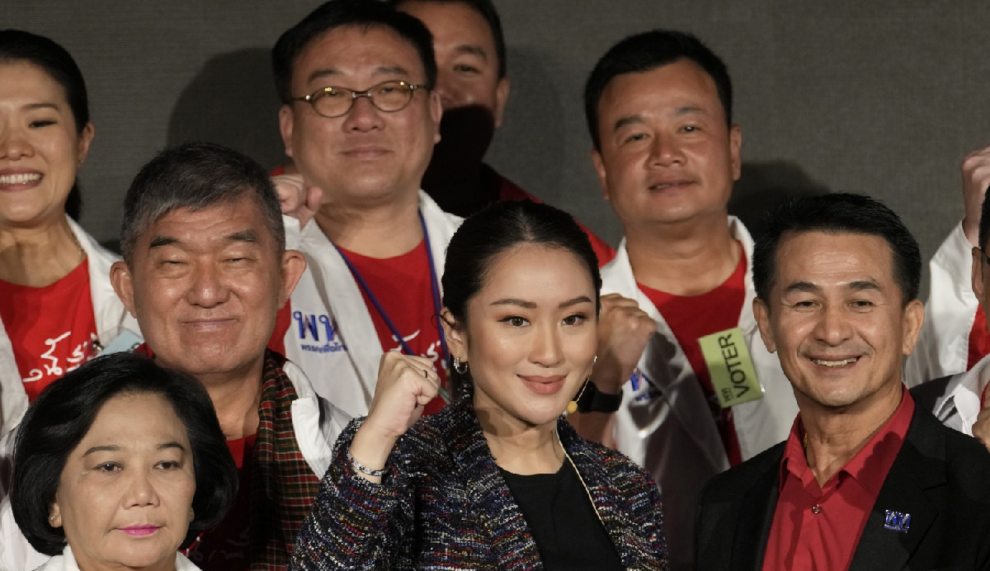The Pheu Thai Party on Friday urged the Move Forward Party (MFP) to rethink its intention to include a proposal amending the lese majeste law in a memorandum of understanding (MoU) that the MFP is asking prospective coalition partners to sign before they proceed with forming a new government.
Deputy Pheu Thai leader, Chusak Sirinil, said he understood that the matter of the lese majeste law would be discussed further between the MFP and potential coalition partners before the MoU is signed.
But because the matter is likely to lead to a major conflict in society, Pheu Thai would like the MFP to revise its plan to include the proposal to amend Section 112 of the Criminal Code in the MoU, he said.
Move Forward deputy leader Sirikanya Tansakun said on Friday that coalition partners need not support its controversial stance on amending the law.
“If parties agree with us on 112, then we are ready to include it in the agreement, but it is not a condition for joining the government,” she said.
Mr Chusak said he believed personally that the MoU should include broad principles on which all prospective coalition partners can agree so they can work together as a government. After signing the MoU, the coalition will then work together to incorporate its key policies into the government’s policies, which can then be declared in parliament, he said.
All the other details, including the fair allocation of cabinet portfolios, should then follow afterwards, he said.
At this point, the MFP and all its prospective coalition partners should, under the MoU, agree to begin their cooperation by discussing how all sides can work together to improve the country’s economic situation instead of paying too much attention to their own policies at the beginning, said Mr Chusak.
MFP secretary-general Chaithawat Tulathon said the party has already sent a copy of the MoU to all ten political parties who have agreed to be in the coalition and is expecting feedback by Sunday.
A discussion will then be organised for all these parties to go into the details of the agreement, finalising it before the final version of the MoU is made public by Monday, as planned, he said.
Mr Chaithawat declined to discuss the details of the tentative version of the MoU, saying that the MFP still has to discuss many other details with the eight parties, including what should and should not be prioritised. The MoU acts as a guideline for all the coalition partners, not just the MFP alone, he said.
As for the Section 112 issue, he said, the MFP has to admit that the matter is likely to lead to societal conflict and should therefore be dealt with in parliament at a later stage, meaning that the details of the MFP’s proposed amendment to the lese majeste law should not appear in the MoU at all.
An informed source who has read a copy of the MoU sent by the MFP to Pheu Thai, however, said the MoU deals with the MFP’s core policies, including ensuring justice for all people affected by past military coups and pushing for an amnesty law for convicts in political cases — something which most prospective coalition partners could not agree, particularly Pheu Thai.
Pheu Thai doesn’t support the plan to push for an amnesty law as it is concerned the matter could be interpreted by the public as the party’s own bid to help former prime minister Thaksin Shinawatra return home, said the source. However, if the MFP later proposes the draft amnesty law on its own, Pheu Thai wouldn’t oppose that, said the source.
The MFP’s intention to liberalise the liquor industry and pass a marriage equality law is opposed by the Prachachat Party, which tends to regard these issues as being against Islamic principles.
The New Party on Friday announced its decision to join the MFP, bringing the number of MPs who will vote for MFP leader Pita Limjaroenrat to become Thailand’s next PM to 316.
Source: Bangkok Post

















Add Comment